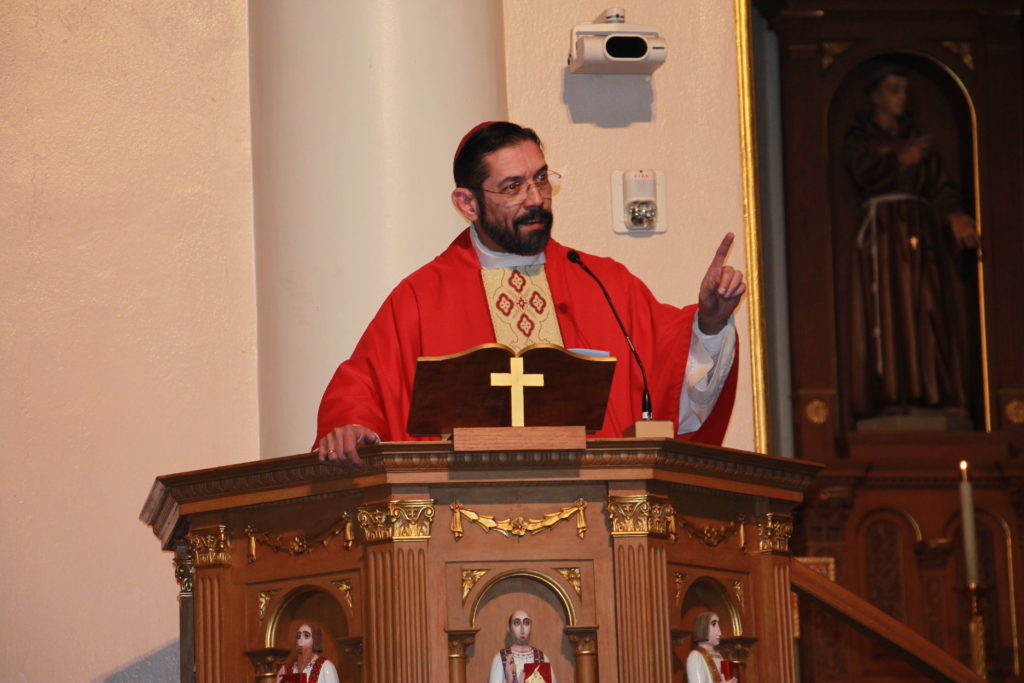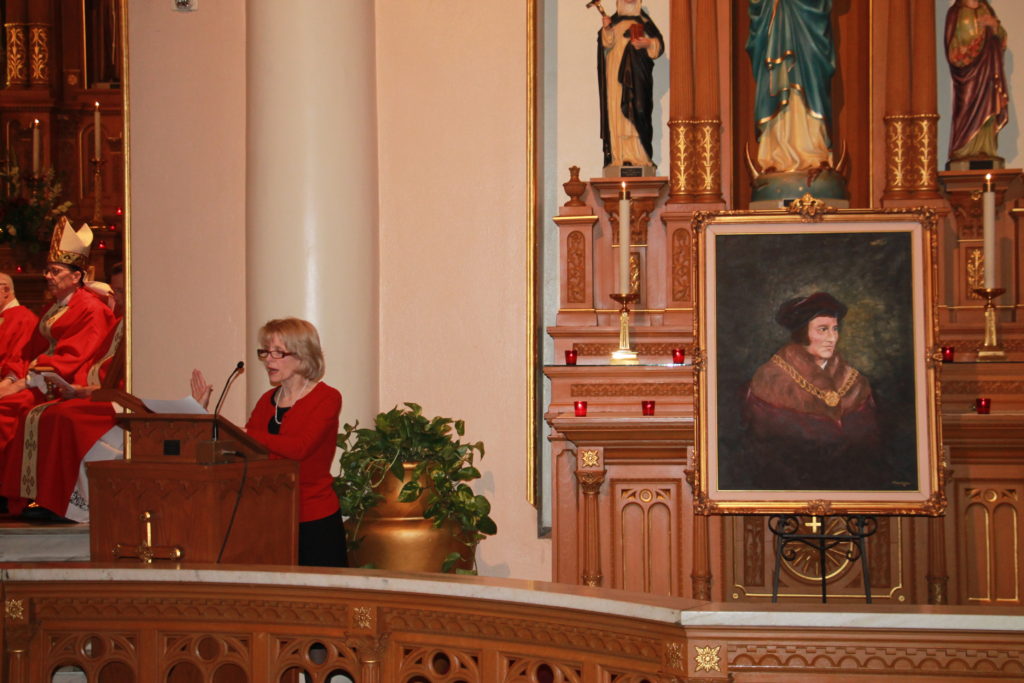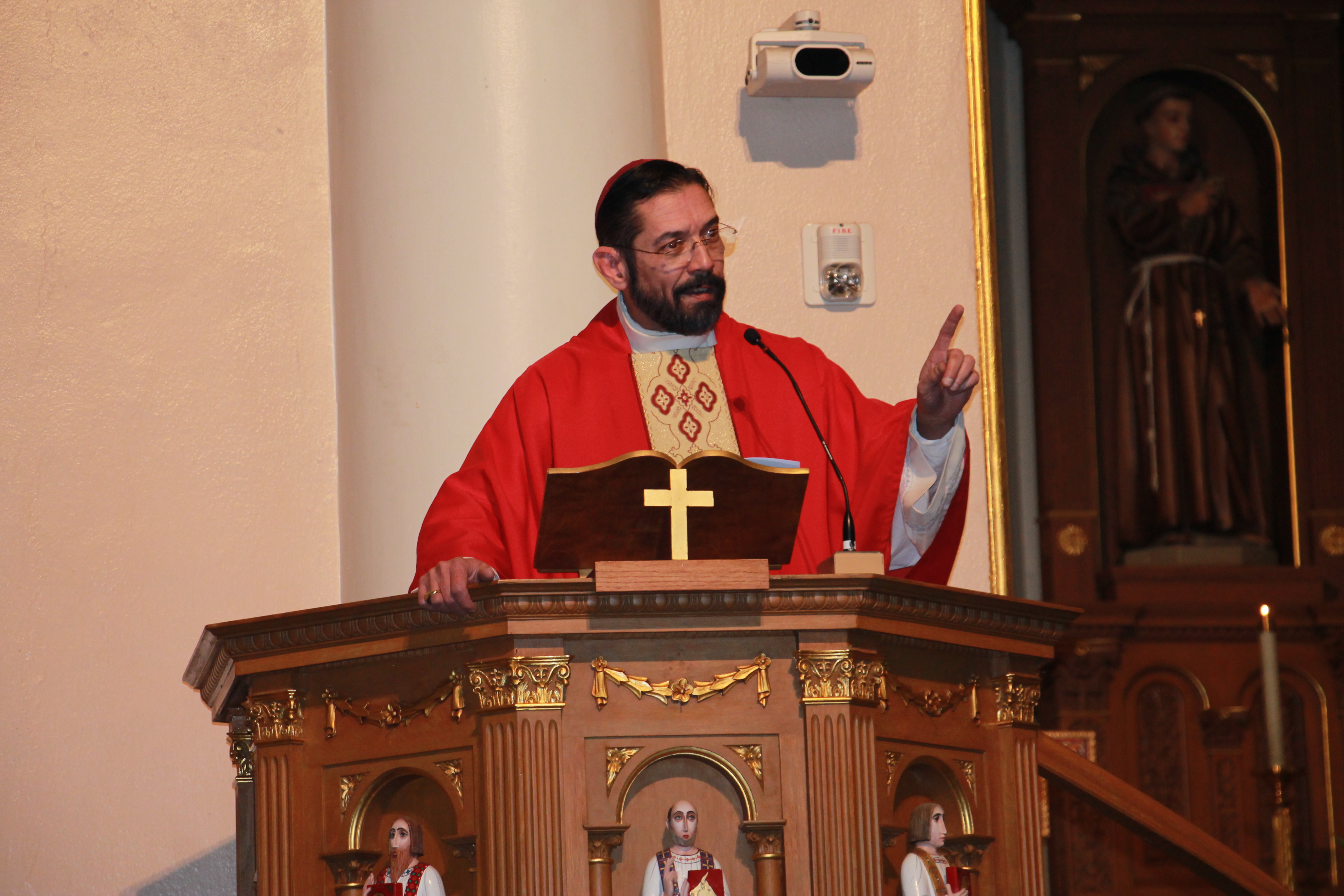
As the Arizona State Legislature launched the 2016 session, lawmakers, lawyers, judges and public officials gathered at St. Mary’s Basilica Jan. 26 for a bit of inspiration from guest homilist Bishop Daniel E. Flores. The bishop traveled from Brownsville, Texas to speak at the annual Red Mass.
With Bishop Thomas J. Olmsted presiding, the bilingual Mass featured a Gospel reading from Mark in which Jesus hears that His mother and brothers are outside calling for Him. He tells those gathered, “Whoever does the will of God is my brother, and sister and mother.” Rather than devaluing family relationships, Bishop Flores noted, Jesus is elevating all relations.
“Jesus Christ taught that … you should judge everybody as if they are your mother … so your relations with people out there are revolutionized because they are mother and brother to you — the relational reality is thrown off kilter.”
The world still thinks in terms of “us” and “them,” the bishop said, but Christ is asking us to rethink our relationships.
“You can’t really say there’s ‘them’ and there’s ‘us’ anymore. There’s just ‘us’ in the human race. God became flesh to become brother with the entire human race. That changes everything,” Bishop Flores said.
Christ crucified, the bishop said, “looks at us and says, ‘Will you respond to Me as your brother?’ God became flesh so His face could be that of every man and woman who suffers the rejection of the world. The power of Christ on the cross is, ‘Am I brother to you?’ That is by far the most profound and burning question the Gospel puts before the world today.”
Rep. Jill Norgard from Arizona’s Legislative District 18 said she planned to take Bishop Flores’ message back to the legislature and put it into practice in her dealings with fellow lawmakers.
“His message to treat everyone like your brother or your mother or your sibling or family is key,” Norgard said, citing the mix of lawmakers of differing backgrounds and viewpoints at the capitol. “Sometimes there’s a lot of animosity. People have to engage in a spirited debate, and at the end of the day, turn the page and move forward with progress and not hold that against somebody.”
Christina Estes-Werther, president of the St. Thomas More Society, the Catholic lawyers’ group that helped organize the Red Mass, lauded Bishop Flores’ message.
“The thing that struck me the most was when he was talking about treating each other like you would your most favorite relative. Immediately my grandmother sprung to mind and that’s a challenge to have to actually treat everybody in that manner,” Estes-Werther said.
Ron Johnson, executive director of the Arizona Catholic Conference, the Arizona Catholic bishops’ public policy arm, described Bishop Flores’ message as “a powerful punch in terms of reminding people to focus on Jesus on the cross and that we’re all sons and daughters of God.”
Tribunal of the Diocese of Phoenix
Fr. Chris Fraser, JCL, called Bishop Flores’ message “thought-provoking.” Though not a secular attorney, as judicial vicar for the diocese, Fr. Fraser applies similar principles to his work in administering justice in the diocesan Tribunal.
There’s a tendency sometimes, Fr. Fraser said, to see people as problems instead of brothers and sisters. “If you are a Christian you can’t look at other people as less than you because Jesus identified Himself with them.”

Led by Chief Justice Diane M. Johnsen of the Arizona Court of Appeals, attorneys who attended the Jan. 26 Red Mass renewed their oath of admission to the Arizona State Bar, promising, among other things, to “never reject, from any consideration personal to myself, the cause of the defenseless or oppressed.”







